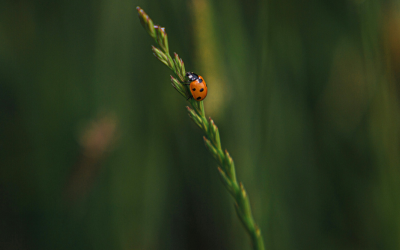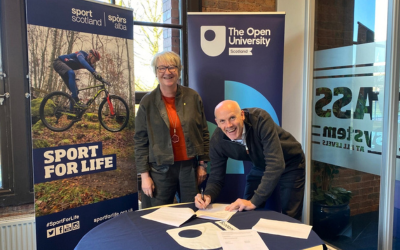Scotland’s links with Caribbean Slavery, by Prof Sir Geoff Palmer
Author:
Prof Sir Geoff Palmer, leading human rights activist and scientist and honorary graduate of The Open University.
Scotland’s first black professor, leading human rights activist and Open University honorary graduate, Prof Sir Geoff Palmer CD, shares reflections on Scotland’s black slavery history and the importance of teaching it today.
I have studied slavery links between Scotland and the Caribbean for the last 15 years. This history is an important part of the history of the British Empire. 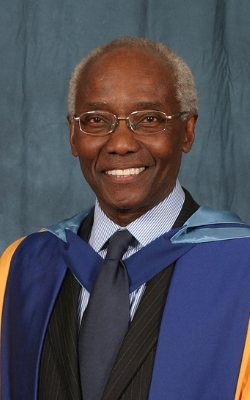
British slave owners in the first half of the 19th century owned about 800,000 slaves in British slave colonies. For example, Jamaica - where I was born - contained about 300,000 slaves and was the main producer of sugar and coffee. However, a significant amount of slave-produced cotton and tobacco came from North American slave plantations to Scotland.
The deprivation of the legal and human rights of the black people of this slavery should not be compared with other slaveries, each slavery must be defined.
Therefore, when British slaves were emancipated in 1833/34, slave owners were given twenty million pounds of compensation (billions of pounds today) because they were entitled by Law to be compensated for losing ownership of their slaves. British slavery was finally abolished in 1838.
During the enslavement of black people as chattel slaves by Britain, Scotland changed from a poor country to a rich country. About 30% of the slave plantations in the Caribbean were owned by Scots. Lady Nugent (wife of the governor) observed in Jamaica in 1801 that:
“Almost all the agents, attornies [sic], merchants and shopkeepers, are of that country [Scotland] and really deserve to thrive in this, they are so industrious”.
Cities such as Glasgow, Edinburgh and Dundee made large fortunes from this slavery. The buying and selling of slave-produced products such as sugar, coffee, cotton and tobacco transformed the wealth of these cities.
For example, the Necropolis cemetery in Glasgow was built by a slave owner and Glasgow’s Gallery of Modern Art was a tobacco merchant and slave owner’s house. Glasgow’s Merchant City had significant links with slavery.
Many addresses in Edinburgh’s New Town are on the slave money compensation list. This means that families in these houses received financial compensation for losing ownership of black slaves in the Caribbean.
Dundee had significant links with slavery in North America and in the Caribbean. The city made millions of pounds producing coarse linen, which was sold to slave owners to clothe their slaves.
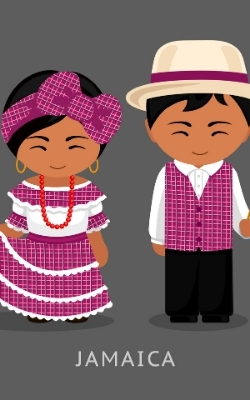 This slavery produced a black Scottish Diaspora - the spread of people from their original homeland - in the Caribbean. About 60% of the surnames in the telephone directory of Jamaica are Scottish surnames and a plaid design is part of the National Dress of Jamaica (illustrated left).
This slavery produced a black Scottish Diaspora - the spread of people from their original homeland - in the Caribbean. About 60% of the surnames in the telephone directory of Jamaica are Scottish surnames and a plaid design is part of the National Dress of Jamaica (illustrated left).
There are more Campbells in Jamaica per acre than there are in Scotland. In my family there are Scottish surnames such as La(r)mond, Wood, Walker, Elliot, Gordon and Mowatt. In the famous Bob Marley and the Wailers’ reggae band, Tosh is short for McIntosh. Other Jamaicans with Scottish names are Naomi Campbell (model), Shelley-Ann Fraser-Price (athlete) and Sol Campbell (footballer).
Glasgow University’s action in researching its links with slavery - before the recent attention to the history of our slavery - shows that institutions can lead in correcting social injustice. Its research showed that the university benefitted from slavery and it has set up educational reparative justice links with the university of the West Indies and with the local community for scholarships for black students.
For example, The City of Edinburgh Council has produced a new temporary plaque which contains a new narrative of the political and pro-slavery activities of Henry Dundas MP (1st Lord Melville), who stopped Wilberforce from abolishing the slave trade from 1792 to 1807, causing over 600,000 Africans to be transported into British slavery. 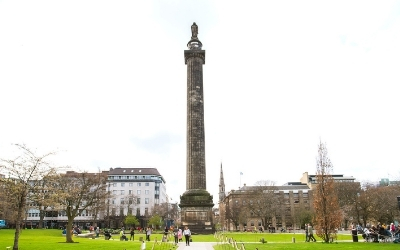
Although many people have stated that statues such as that of Henry Dundas (pictured right) should be removed, my view is that if you remove the evidence, you remove the deed. Therefore, slavery-related objects such as statues and buildings should carry plaques which tell the truth of links with slavery.
In this regard, the next statue that is removed, should be racism. Teaching this history properly in schools and giving it proper attention in our higher institutions of education should help to reduce slavery-related racism.
Unlike those who have said that people are different species and races…my view is that we are one humanity, nothing less.
Professor Sir Geoff Palmer CD has researched, written and lectured extensively on Scotland’s black slavery history and has been knighted for his services to human rights, science and charity.
Sir Geoff was the first European to be honoured with the American Society of Brewing Chemists Award of Distinction, which is considered the ‘Nobel prize’ of brewing. He was also appointed Jamaica’s first Honorary Consul (CD) in Scotland.
This blog is an edited version of an article by Sir Geoff on the OU’s free learning site, OpenLearn.
You can also watch a short video of Sir Geoff being interviewed in Edinburgh by fellow OU honorary graduate Prof Benjamin Zephaniah, on the OpenLearn site.
Photos: Prof Sir Geoff Palmer © The Open University, all other images © iStock.
News
Media contacts
Media enquiries
OU in Scotland Media Relations:
Call 0131 549 7932
OU UK Press Office:
Call 01908 654316
Out-of-hours:
07901 515 891
Visit our OU UK news site
